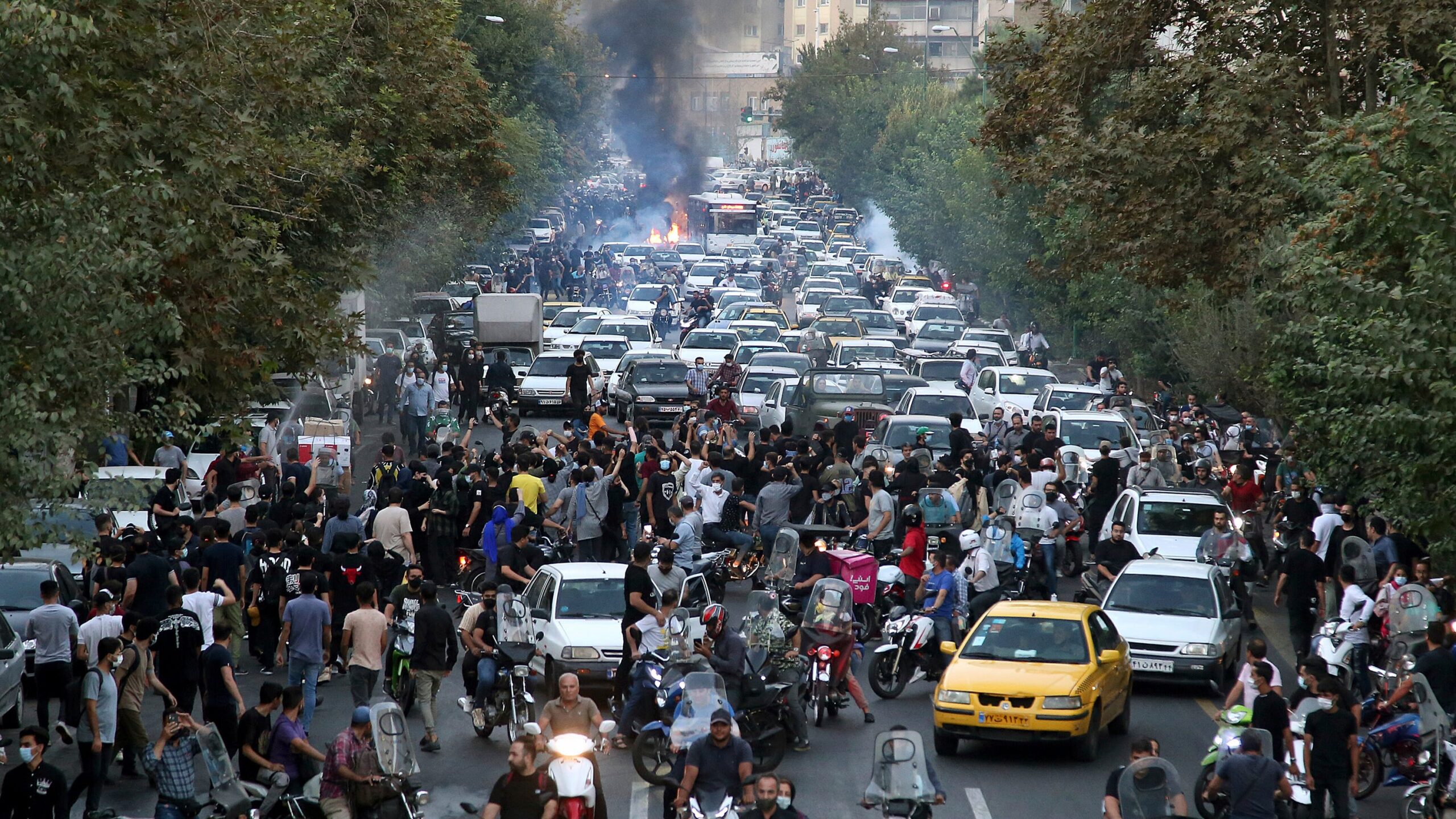
Good afternoon, OnPolitics readers!
Three weeks into nationwide protests triggered by the killing of Mahsa Amini, a 22-year-old Kurdish-Iranian woman who died in custody after being arrested by Iran’s “morality police,” authorities continue to violently crack down on anti-regime demonstrators.
As the uprisings have spread to dozens of cities, the government has blocked Internet connectivity in Iran.
There have been mass arrests of students, journalists, activists, artists, sports figures and celebrities who have, at great personal risk, expressed a range of social, economic and political grievances with Iran’s hardline government.
Iran has seen large-scale anti-government protests before. However, they have fizzled out amid overwhelming brute force from Iran’s security services. Still, many analysts and participants say these protests feel different; that dissenters have appeared more willing to brave beatings, arrest and even death as they demand justice and an end not simply to mandatory hijab wearing, but to Iran’s oppressive clerical regime.
OnPolitics Newsletter:Sign up to stay in the conversation
USA TODAY reporter Kim Hjelmgaard conducted interviews with protesters on an encrypted communications channel to hear directly about their demands and to understand how they have experienced the protests.
USA TODAY audience editor Amy Nakamura asked Kim about the process.
Q: How did you get in touch with the people in your story?
Kim: The Internet in Iran is partially blocked, and there are still some data services for cellphone use, etc. Since visiting Iran in 2018, I have kept up my communications with the many people I met there. In this case, I used long-standing contacts in the country to make introductions. I then vetted them to make sure they were genuine. After that, I communicated with them through an encrypted channel.
Q: If someone was interested, what is the best way to support those in Iran?
Kim: Sanctions, distance and the difficulties of getting visas means there’s little people can do, practically, in terms of sending money and being active in the country. Protests such as we’ve seen around the world send a message to Iran’s leaders. Whether they are listening, or care, is another thing.
When you meet an Iranian, ask them about their country. It has an unbelievably rich culture and history. The people are super smart and brave; as the thousands of teenagers who have joined the protests recently are showing us each day.
???? Dig deeper:Iranians on why they’ll risk beatings and death for change
More stories on Iran:
- “Women, life, liberty “ A member of the European Parliament, Oscar-winning actors and women and girls around the world are publicly cutting their hair to protest the death of an Iranian woman who was in custody after violating a dress code.
- Iran’s parliamentary speaker cautions country: Mohammad Bagher Qalibaf warned Oct. 2 that protests over the death of a young woman in police custody could destabilize the country and urged security forces to deal harshly with those he claimed endanger public order.
- Masha Amini’s death sparks global outrage: U.S. Secretary of State Antony Blinken said on Sept. 19 on Twitter that Amini “should be alive today. Instead, the United States and the Iranian people mourn her. We call on the Iranian government to end its systemic persecution of women and to allow peaceful protest.”
It’s Amy and here are some more stories to check out today!
Real quick: Other stories to read today
- What’s coming next in the Oath Keepers trial: Vitriolic messages between Oath Keepers and early plans to bring violence to D.C. epitomized the high-profile trial’s first week. Here’s what you need to know before the second week gets underway.
- Meet the country’s documented dreamers: More than 200,000 U.S. residents are “documented dreamers,” or children who immigrated to the U.S. legally as dependents on their parents’ visas but age out once they turn 21. This fall, Congress could introduce new protections for those dreamers.
- Election workers endure threats of violence: The 2020 election, in addition to igniting an extremist revolt that resulted in the stunning assault on the U.S. Capitol, has transformed a foundational civic exercise – voting – into a new national security challenge.
- Judges block abortion laws: Judges in Ohio and Arizona put abortion bans on hold Friday in high-stakes cases in the national debate over the fate of abortion since Roe v. Wade was overturned. .
????️ What’s next: With midterm elections less than a month away, candidates are taking to the stage to push their platforms. Here are four major debates to watch this week, including one happening tonight.




